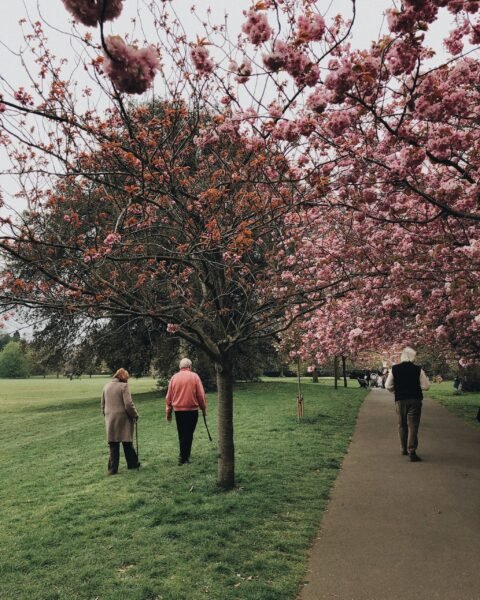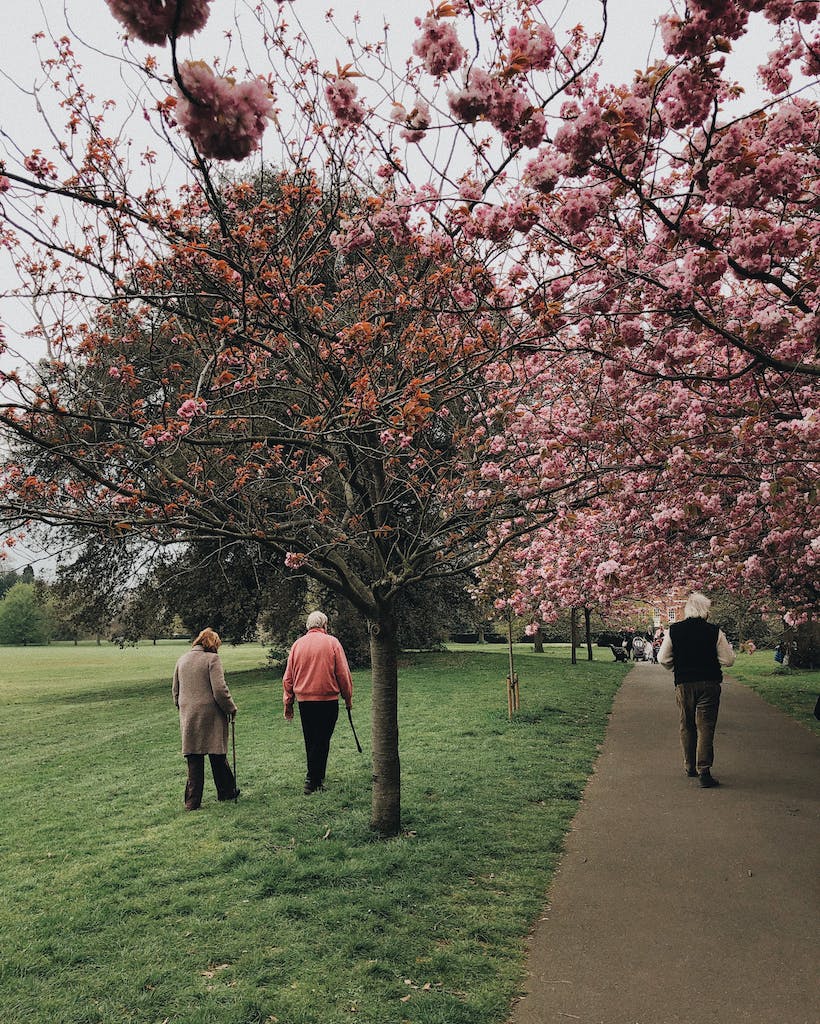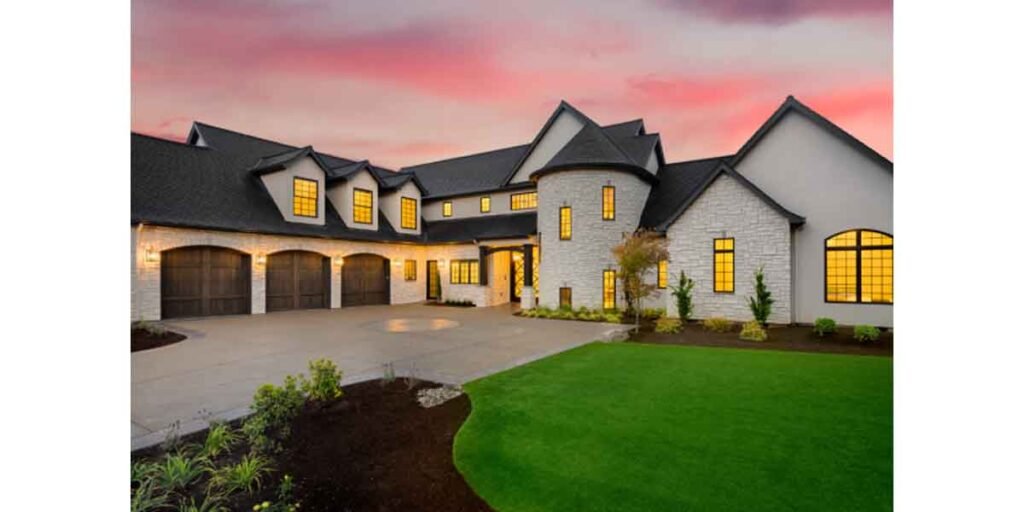Where do old people hang out?

As a physical therapist who works with seniors, I’m often asked where older adults tend to spend their free time. From recreation centers to places of worship, seniors have diverse interests and habits when it comes to social activities. Getting out into the community provides mental stimulation, companionship, and physical activity—all important components for healthy aging.
In this post, I’ll explore some of the top spots seniors like to frequent during their golden years. Understanding popular hangouts can help family members, caregivers, and healthcare providers gain insight into seniors’ lifestyles. My hope is that this information will lead to more meaningful connections with our elder population.
Community and Recreation Centers
Community centers offer a one-stop-shop for seniors seeking social engagement and physical activity. From dance lessons and crafting circles to exercise classes and day trips, most centers provide diverse programming. The relaxed, welcoming environment appeals to older adults looking to stay active while meeting new people.
In my physical therapy practice, I often recommend community center classes to help seniors regain strength and mobility. Activities like tai chi, yoga, and low-impact aerobics improve balance and cardiovascular health. Benefits extend beyond the physical; research shows group exercise significantly boosts mental health as well. It’s no surprise that I regularly encounter my patients in these spaces.
Public Parks and Natural Areas
Spending time outdoors in green spaces emerges as another favorite senior pastime. Parks provide room to roam along tree-lined paths and lush gardens. They host community events like concerts and farmers markets. Many feature recreation amenities, from bocce ball courts to picnic pavilions where seniors gather to socialize over meals.
In good weather, I frequently spot older patients enjoying my city’s public gardens and trails. Studies reveal even brief glimpses of nature can lower stress, anxiety, and depression. It makes sense why seniors seek outdoor relaxation as they face health changes or loss of loved ones. Simple activities like birdwatching or playing lawn bowling get them moving in an uplifting, stimulating setting.
Places of Worship
Faith communities offer more than spiritual guidance; they provide a welcoming space where seniors connect over shared beliefs and values. Attending religious services allows older adults to maintain social networks even when mobility becomes limited. Friendships formed in the pews often transition into caring support systems beyond church walls.
In congregations of all denominations, I’ve witnessed seniors who play active roles as clergy members, choir singers, charity organizers, and event planners. Staying engaged sustains physical health and cognitive function while lending a sense of purpose. And comfort often comes from prayer gatherings or home visits from youth ministry members. For some seniors facing isolation, places of worship represent their only regular interaction outside of family caregivers.

Retirement Communities
Purpose-built for seniors, retirement complexes feature housing, amenities, and programs exclusively for the 55+ population. Many provide services like housekeeping, transportation, and meal plans that appeal to older adults seeking active lifestyles without home maintenance hassles.
Common amenities include fitness studios, hobby workshops, educational seminars, gaming lounges, and walking trails. Scheduled outings to concerts, museums, and sporting events also encourage residents to stay socially and physically engaged within their peer community. With access to 24-hour assistance, retirement living enables seniors to enjoy independent or enriched lifestyles.
I work closely with physical and occupational therapists based in such communities. We share a goal to keep residents mobile and healthy so they can fully participate in campus programming and outings. Adapting fitness regimens to varying senior levels proves crucial to maintaining strength, flexibility, and balance. Guiding seniors through posture improvement, assistive equipment, and home modifications also allows more activity as physical abilities evolve.
Cultural Establishments
From theaters to libraries, cultural establishments help satisfy a lifetime love of learning and creativity. Many offer specialized programming for seniors featuring classic films, computer skills lessons, memoir-writing courses and book clubs. Passionate experts and veteran hobbyists lead interactive sessions in arts, crafts, and other enriching subjects.
Cultural venues like museums often schedule senior-friendly events during off-peak hours. This allows older guests to tour expansive exhibits at a more leisurely pace. Docent tours provide insightful narratives without strenuous walking. Getting a behind-the-scenes look fuels the imagination while bringing art and history alive.
Lifelong learning benefits cognition, memory, and emotional health. The social connections forged in classes and study groups help combat isolation. One patient shared how a museum drawing club changed her outlook on aging after losing a husband. By tapping into creativity with like-minded peers, she discovered a new sense of community.
Corner Coffee Shops or Cafés
For earlier risers, local coffee shops represent morning hotspots to enjoy a pastry with friends. Familiar baristas greet senior regulars by name and have their drinks ready as they walk in the door. In many shops, a table often reserved for “the club” ensures a space to convene and hash out neighborhood news.
Beyond mornings, coffee shops host afternoon drop-ins for residents who want to read the paper, play cards, or simply have some company. Specially priced coffee and snacks make lingering more affordable too. And nearby universities even have campus cafés just for seniors who live nearby. There’s no pressure to buy anything; it simply provides a relaxed setting for older adults to hang out and bond over life experiences.
For homebodies, coffee shop gift cards from friendly neighbors provide motivation—and affordability—to get out of the house more often. Sharing a cookie is better with a friend, and a change of scenery does wonders for mental health. Support your elder loved ones by bringing them to community spaces where they can nurture friendships and pursue interests. With more activity, there is so much living yet to do!





